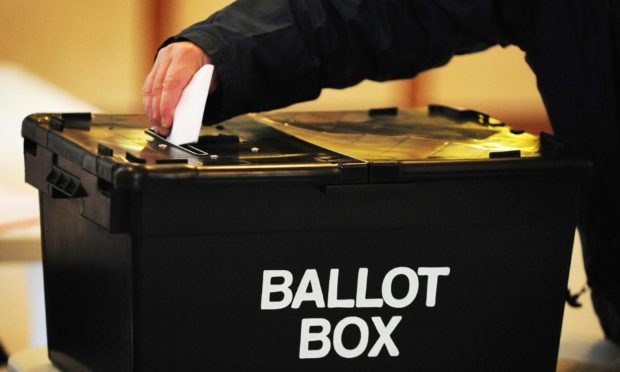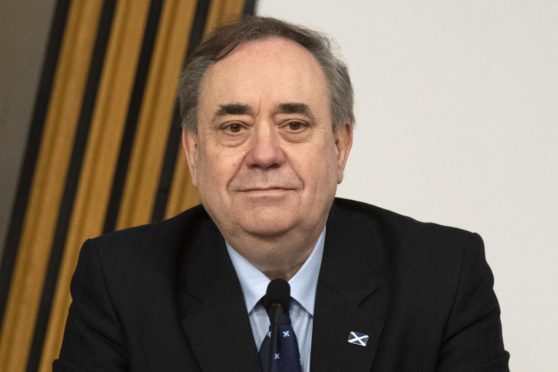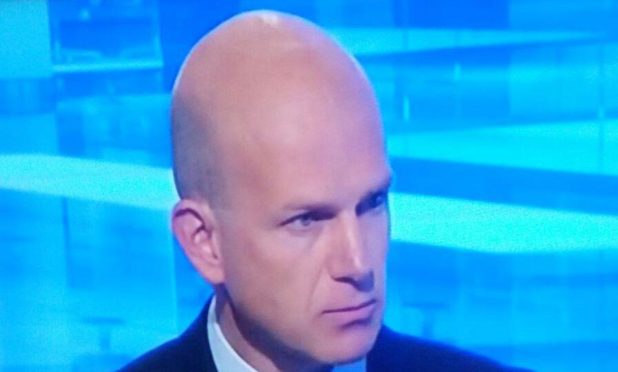An expert has tipped the Alba Party for success at the Holyrood election and insisted its potential was “much bigger” than just being a fan club for Alex Salmond.
Professor Robert Johns, who co-authored Takeover: Explaining the Extraordinary Rise of the SNP, said it was exploiting a long-standing “gap in the market” for a new party that was seen as offering “a cleaner vote for the idea of independence than the SNP”.
A Survation poll, carried out exclusively for DC Thomson, put support for the Alba Party at 3% last week, with 71% of Scots saying they viewed Mr Salmond unfavourably – by far the worst result for any mainstream political leader in the UK.
However, Prof Johns suggested that the party, which is fielding candidates on the regional list at the upcoming election, could be backed by a large number of voters who dislike the former first minister and SNP leader.

The Essex University expert said: “You know everybody is obsessed with Alex Salmond’s popularity ratings and saying ‘oh well, they are obviously not going to do that well because he is very unpopular’.
“There are clearly a lot of people who don’t particularly like Alex Salmond, but like this idea (of the Alba Party) a lot, and watching them wrestle with that dilemma has been really interesting.
“If you drill down as to who says that they feel favourably to Salmond, actually a non-trivial proportion of them are Conservatives, who I think just see him as currently a more effective opposition to Nicola Sturgeon than much else.
“But I wouldn’t think they will ever vote for Alba, whereas there is an even bigger group of people who don’t like him but like this idea.
“The potential vote is much bigger than the Alex Salmond fan club size.”
The potential vote is much bigger than the Alex Salmond fan club size.”
Prof Johns previously worked at Strathclyde University and was a principal investigator on the 2016 Scottish Election Study.
He said there were always “likely to be problems” in setting up a new party, such as problems with particular candidates, and that a few percentage points for Alba would be the difference between “near oblivion and startling success”.
But he said he would be “very surprised if they didn’t have at least some presence in Holyrood” after the election.
Mr Salmond’s new status as an “outsider” could play a part in any such success, he believed.
“Alex Salmond was very much not an outside until relatively recently, but there is a sense in which he has become an outsider, at least outside the political establishment,” the professor said.
“That has made it easier for him to capture that market.
“There’s still a reasonably long way to go, the election is very volatile, obviously nobody has a long-standing attachment to Alba, so it could all fizzle away very quickly.
“But the the volatile electorate also means that there is scope to make gains quite quickly.”
As well as Mr Salmond’s position as an “outsider”, Prof Johns said the Alba Party could capitalise on a “vulnerability” created by the SNP’s own strategy.
The SNP has achieved a lot of success by being less gung-ho on independence – that has served it well in many contexts – but it has left it vulnerable in a proportional election, and that vulnerability is being exploited now.”
“There has been a kind of gap in the market for a party that is to the radical side of the SNP on independence for a long time now. But I didn’t expect it to take this form,” he said.
“People love to vote for an idea but they hate to waste their vote.
“Essentially a lot of the arguments against Alba are not that ‘we think you are wrong in what you are saying about independence’, it’s that you risk votes being wasted that will then benefit the anti-independence side.
“Now, there are arguments on both sides in terms of the tedious mechanics of the electoral system, but you get the impression that Alba feels to some people like a cleaner vote for the idea of independence than the SNP.
“And the SNP has achieved a lot of success by being less gung-ho on independence – that has served it well in many contexts – but it has left it vulnerable in a proportional election, and that vulnerability is being exploited now.

